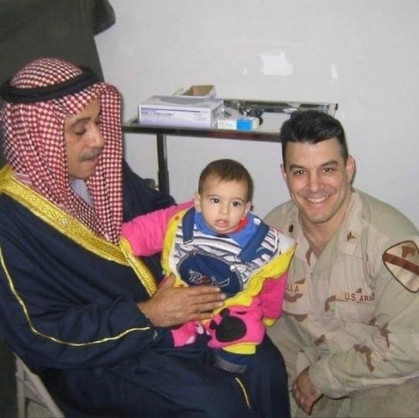WarDocs had the pleasure of hosting Dr. Philip C. Spinella, a Professor in the Departments of Surgery and Critical Care Medicine, and co-director of the Trauma and Transfusion Medicine research center at the University of Pittsburgh. Our engaging conversation centered around the evolution of Transfusion Medicine on the battlefield, the lessons learned from past wars, and the future of hemostatic resuscitation.
The Shift in Transfusion Practices
Dr. Spinella shared intriguing insights about the historical shift in blood transfusion practices during the Vietnam War. The transition from using whole blood to a mixture of red cells and crystalloids marked a significant milestone in Transfusion Medicine. Lessons learned from Iraq and Afghanistan helped MILMED "rediscover" whole blood and underscored the importance of keeping this knowledge preserved to avoid repeating past mistakes in future conflicts.
The Concept of Damage Control Resuscitation
We delved into the concept of damage control resuscitation, which focuses on the transition from component therapy to whole blood therapy. This approach faced significant barriers, including the challenges of developing high-level evidence through randomized controlled trials. The alternative approach of focused empiricism was explored to circumvent these challenges.
Life-Threatening Hemorrhage in Pediatric Patients
The conversation also covered life-threatening hemorrhage in pediatric patients, highlighting the differences between adult and pediatric populations. An NIH-sponsored prospective observational study found a higher mortality rate in children with massive bleeding compared to adults. This highlighted the importance of having various tools in the ‘toolbox’ to ensure the best care for patients experiencing life-threatening hemorrhage.
The Future of Therapy for Life-Threatening Hemorrhage
The development of a dry artificial whole blood syringe and its potential applications for various types of simulated bleeding was one of the most exciting topics we discussed. This project, funded by DARPA, aims to create custom-made whole blood-like products specific to a patient's coagulopathy.
Summary
The conversation with Dr. Spinella provided a comprehensive look at the evolution, lessons, and future of hemostatic resuscitation. The need for precision Transfusion Medicine was underscored, along with the importance of having various tools in the 'toolbox' to ensure the best care for patients experiencing life-threatening hemorrhage.
The podcast episode shed light on the crucial role of Transfusion Medicine on the battlefield and its ongoing evolution better to serve the needs of both adult and pediatric patients. It highlighted the importance of learning from history to improve future practices and the need for continuous research and development in this critical area of medicine.
The interview with Dr. Spinella is available on all major podcast platforms. Here are some popular links that will bring you directly to the episode:
Apple: https://apple.co/3JEaORg
Spotify: https://spoti.fi/3NTYsa1
Honoring the Legacy and Preserving the History of Military Medicine
The WarDocs Mission is to honor the legacy, preserve the oral history, and showcase career opportunities, unique expeditionary experiences, and achievements of Military Medicine. We foster patriotism and pride in Who we are, What we do, and, most importantly, How we serve Our Patients, the DoD, and Our Nation.
Find out more and join Team WarDocs at https://www.wardocspodcast.com/
Check our list of previous guest episodes at https://www.wardocspodcast.com/episodes
Listen to the “What We Are For” Episode 47. https://bit.ly/3r87Afm
WarDocs- The Military Medicine Podcast is a Non-Profit, Tax-exempt-501(c)(3) Veteran Run Organization run by volunteers. All donations are tax-deductible and go to honoring and preserving the history, experiences, successes, and lessons learned in Military Medicine. A tax receipt will be sent to you.
WARDOCS documents the experiences, contributions, and innovations of all military medicine Services, ranks, and Corps who are affectionately called "Docs" as a sign of respect, trust, and confidence on and off the battlefield, demonstrating dedication to the medical care of fellow comrades in arms.
Follow Us on Social Media
Twitter: @wardocspodcast
Facebook: WarDocs Podcast
Instagram: @wardocspodcast
LinkedIn: WarDocs-The Military Medicine Podcast




















